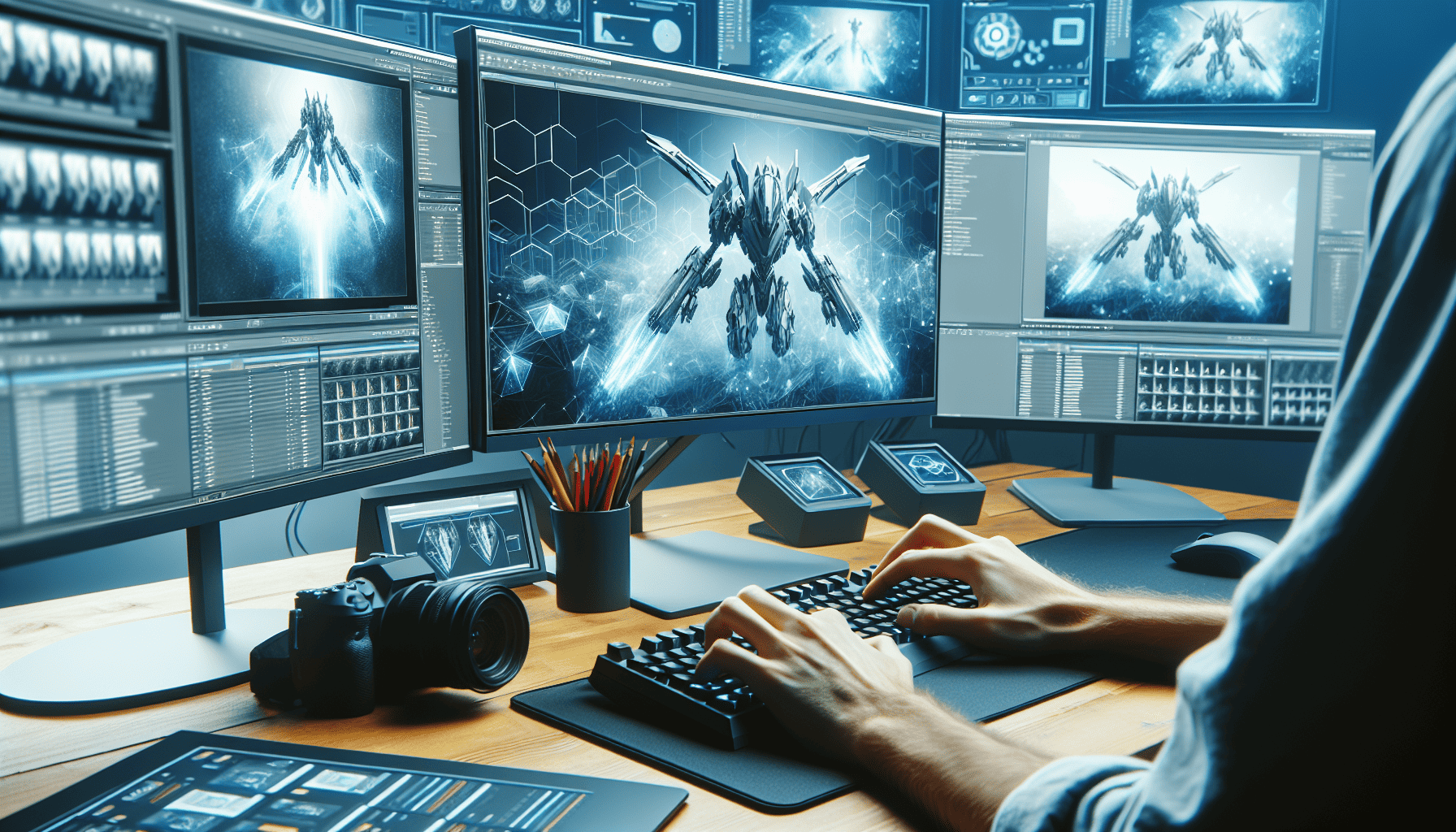Mastering the art of game development requires a blend of creativity, technical skill, and a deep understanding of the tools of the trade. Whether you're an indie developer working on your first project or part of a large studio producing a blockbuster title, the right software can make all the difference. Here’s an overview of essential tools and expert tips to help you succeed in the dynamic world of game development.
Essential Tools for Game Development
-
Game Engines:
- Unity: Known for its flexibility and a vast asset store, Unity is ideal for indie developers due to its ease of learning and cross-platform capabilities. It supports 2D and 3D development, making it versatile for any project.
- Unreal Engine: Preferred by large studios for its high-end graphics capabilities, Unreal Engine is perfect for creating visually stunning games. It offers a powerful scripting language, Blueprints, allowing designers to prototype without deep coding knowledge.
- Godot: An open-source game engine that's gaining popularity for its lightweight and intuitive design. It’s a great choice for developers who want a cost-effective solution with a straightforward interface.
-
Graphics Design Software:
- Blender: An open-source tool that offers everything from 3D modeling to animation. It’s a favorite among indie developers for its robust feature set and lack of a price tag.
- Adobe Photoshop and Illustrator: Industry standards for 2D art creation, these tools are essential for creating textures, UI elements, and other graphics assets.
-
Sound Design Tools:
- Audacity: A free and open-source digital audio editor that allows you to record and edit sound. It's user-friendly and perfect for indie developers.
- FMOD Studio: Used by many large studios, FMOD offers real-time audio mixing and sound design capabilities, ensuring your game's audio is just as immersive as its visuals.
-
Project Management and Collaboration Tools:
- Trello: A simple, visual way to manage tasks. It supports teamwork and helps in keeping everyone on the same path.
- JIRA: A more sophisticated option preferred by professionals, providing bug tracking, issue tracking, and agile project management solutions.
Expert Tips for Successful Game Development
-
Prototype Before You Build: Before diving into full-scale development, create a basic prototype to test ideas and mechanics. This helps identify issues early and ensures the game concept is both fun and feasible.
-
Focus on Core Mechanics: Hone in on the core gameplay mechanics and perfect them. A game with solid mechanics will provide a more enjoyable experience even with basic graphics or a simplistic storyline.
-
Iterative Development: Use an iterative development process where you continuously test and refine game elements. This allows for constant improvement and adaptation based on player feedback.
-
Build a Community: Engage with your potential audience as early as possible. Platforms like Discord and Reddit are perfect for building a community that can provide invaluable feedback throughout the development process.
-
Keep Learning: The gaming industry is constantly evolving with new technologies and methodologies. Stay updated by participating in game jams, attending conferences, and engaging with other developers to learn new techniques and insights.
-
Mindset Matters: Develop a growth mindset. Challenges are inevitable, but approaching them as opportunities to learn will propel your skills and your project forward.
By mastering these tools and embracing these expert practices, you can streamline your development process and enhance the quality of your games. Whether working solo or with a large team, the journey to creating compelling games is filled with learning, experimentation, and passion. Embrace these elements to bring your unique vision to life in the gaming world.
